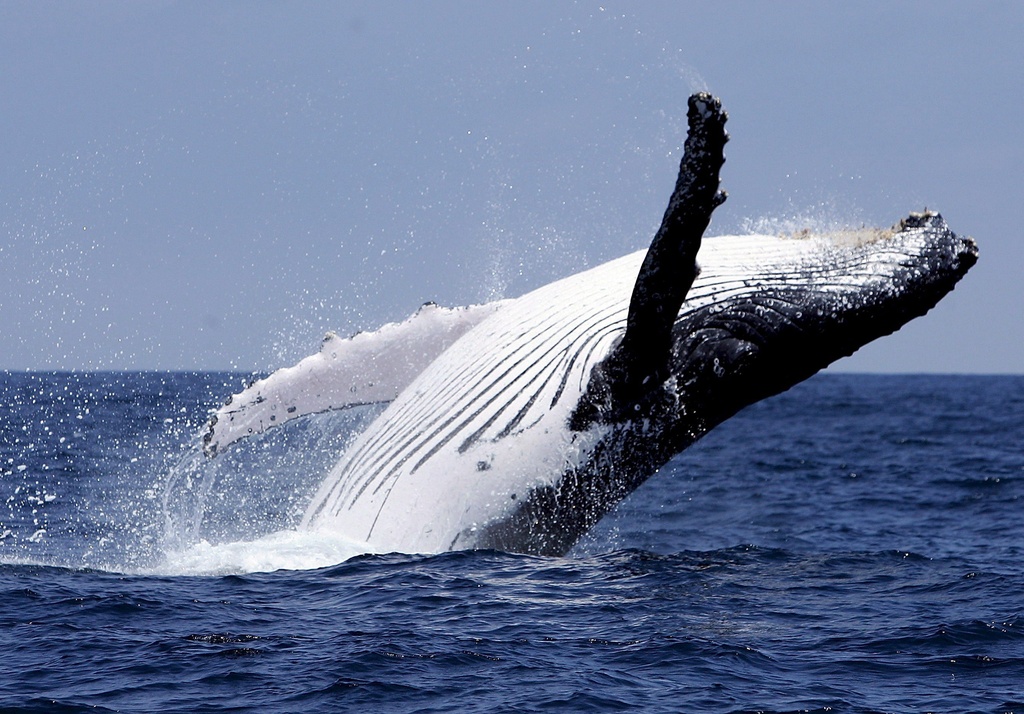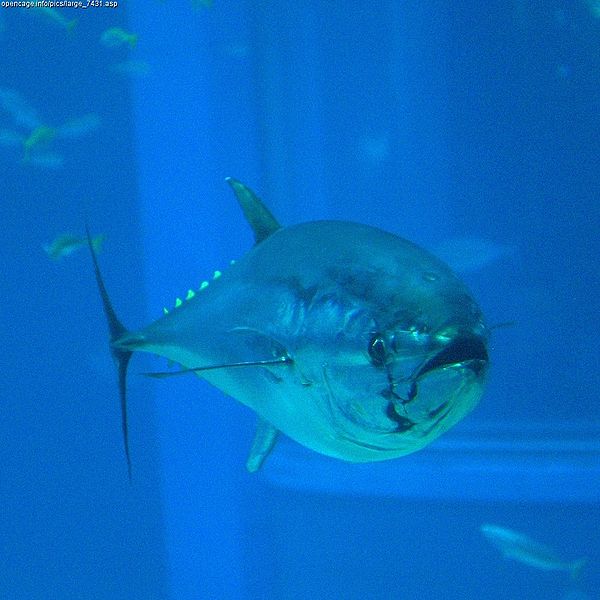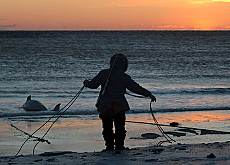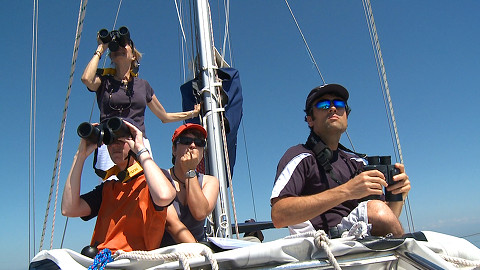Whaling moratorium talks collapse

The breakdown of talks on replacing a moratorium on whaling with a controlled cull is bad news for whales, says the Swiss Veterinary Office.
On Wednesday delegates at an International Whaling Commission (IWC) conference in Morocco failed to reach a deal to curb whale hunts by Japan, Norway and Iceland.
Switzerland was one of 88 nations involved in two days of intense talks on a proposal to lift the 25-year-old moratorium on commercial whaling for ten years in exchange for strict controls on limited whaling.
About 1,500 of the animals are killed each year by Japan, Norway and Iceland.
Negotiators in the Moroccan city of Agadir said the latest compromise proposal for ending a long-standing deadlock over the controversial issue of whaling had failed because whaling nations and anti-whaling delegations could not find enough common ground.
Acting IWC chairman Anthony Liverpool said on Wednesday that “fundamental positions remained very much apart”.
“After nearly three years of discussions, it appears our discussions are at an impasse,” said the main US delegate Monica Medina.
Some delegates said the talks collapsed because Japan had agreed to reduce its annual cull but refused to stop hunting in the Southern Ocean below Australia, where four-fifths of whales go to feed.
Japan’s whaling commissioner, Yasue Funayama, said her country had offered major concessions to reach a compromise and blamed anti-whaling countries that refused to accept the killing of a single animal.
“We must rise above politics and engage in a broader perspective,” Funayama said.
Swiss disappointed
Marcel Falk, spokesman for the Swiss Federal Veterinary Office, said the failure was “disappointing”.
“This is bad news for the whales,” he told swissinfo.ch “The moratorium will continue, but we know that in this situation too many whales are being killed. It would have been very important to gain control back over whale hunting.”
In Agadir Switzerland called for a limited, gradual lifting of the moratorium for a certain number of non-endangered whale species in coastal areas, while retaining the ban on commercial whaling for all other species. This long-term strategy should result in a reduction in the overall number killed, it claimed.
“We are ready to end a moratorium if we can agree internationally on a tightly controlled system that protects whales effectively,” said Falk. “People always feel comfortable with the moratorium as they think it means no whaling, but it’s simply not true. This moratorium kind of blinds people and doesn’t protect whales enough.”
Falk said the talks’ main sticking points had been a ban on the international trade in whale meat trading and whale-related products, ending so-called scientific whaling and creating whale protection areas, such as Antarctica.
Southern sanctuary
The IWC declared a whaling sanctuary in 1994 in the Southern Ocean, but Japanese ships hunt freely there because the IWC has no enforcement powers. Australia has already launched a complaint against Japanese whaling at the International Court of Justice in The Hague.
The proposed deal would let Japan kill 400 whales in the southern sanctuary for the next five years, which many countries thought was too high and which Japan saw as a major concession.
Japan set a 2009 quota for itself to kill around 900 whales, but did not reach that figure due to harassment from anti-whaling groups.
Australia and several Latin American countries reportedly held firm on zero whaling in the Antarctic.
Blame
Environmentalists blamed Japan for the collapse.
“If Japan had agreed to a phase out in the Southern Ocean, there would have been a good chance for a deal,” said Wendy Elliott of WWF.
Others expressed relief that the 25-year ban on whaling was not lifted.
“Had it been done here, this deal would have lived in infamy,” said Patrick Ramage of the International Fund for Animal Welfare.
Max-Olivier Bourcoud, president of the Swiss Cetacean Society, said he was happy the deal had failed, as it was “too early” to renew commercial whaling and the new whaling quotas had been drawn up using “economic and political” criteria rather than scientific.
Bourcoud also criticised the “surprising” Swiss position, which he felt did not match public sentiment and was “180 degrees” away from the Swiss government’s original spirit when it joined the IWC in 1980.
Simon Bradley, swissinfo.ch and agencies
The International Whaling Commission (IWC) instituted a moratorium on commercial whaling in 1986. But the group is now bitterly divided between countries that assert all whales need protection and others, such as Japan, that say some species are now abundant enough for limited hunting.
Japan, which also says whaling is a cultural tradition, began scientific research whaling in 1987. The meat, which under commission rules must be sold for consumption, ends up in supermarkets and restaurants, but the Japanese appetite for whale meat is fading.
Iceland is also permitted to catch whales for scientific reasons. In addition, it resumed commercial whaling in 2006.
Norway has a legal objection to the moratorium and has continued commercial hunting of minke whales.
The British Sunday Times newspaper recently accused Japan of using aid money and personal favors to buy votes at the International Whaling Commission.
In a sting operation the newspaper secretly filmed officials from six developing countries talking with reporters who portrayed themselves as emissaries of a Swiss billionaire wanting anti-whaling votes at the IWC’s meeting in Morocco.
The six indicated that any offer from the Swiss would have to top what Japan already gives them. Tanzania’s top delegate was quoted as saying he had accepted trips to Japan.
Japan denies any wrongdoing, and says allegations of vote-buying are meant to “devalue” Japan’s position at the IWC. It says the country’s national policy is to “support developing countries”.
The Japanese government builds fisheries, harbours, schools and contributes to development budgets of more than 20 countries that consistently vote in Japan’s interests at the IWC.
A 2007 report by the Italy-based Third Millennium Foundation found that 28 countries had been recruited to the whaling commission as a result of Japanese aid – including the landlocked African nation of Mali – giving the regulatory agency roughly a 50-50 split between pro- and anti-whaling countries.

In compliance with the JTI standards
More: SWI swissinfo.ch certified by the Journalism Trust Initiative





You can find an overview of ongoing debates with our journalists here. Please join us!
If you want to start a conversation about a topic raised in this article or want to report factual errors, email us at english@swissinfo.ch.